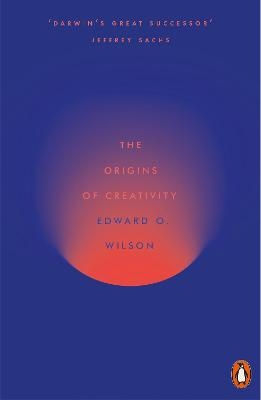
The Origins of Creativity
Seiten
2018
Penguin Books Ltd (Verlag)
978-0-14-198634-0 (ISBN)
Penguin Books Ltd (Verlag)
978-0-14-198634-0 (ISBN)
'An intellectual hero ... A superb celebrator of science in all its manifestations' Ian McEwan
'Darwin's great successor' Jeffrey Sachs
The legendary biologist Edward O. Wilson offers his most philosophically probing work to date
'Creativity is the unique and defining trait of our species; and its ultimate goal, self-understanding,' begins Edward Wilson's sweeping examination of the humanities and their relationship to the sciences. By studying fields as diverse as paleontology, evolutionary biology and neuroscience, Wilson demonstrates that human creativity began not 10,000 years ago, as we have long assumed, but over 100,000 years ago in the Paleolithic Age. Chronicling the evolution of creativity from primates to humans, Wilson shows how the humanities, in large part spurred on by the invention of language, have played a previously unexamined role in defining our species. Exploring a surprising range of creative endeavors - the instinct to create gardens; the use of metaphors and irony in speech; or the power of music and song - Wilson proposes a transformational 'Third Enlightenment' in which the blending of science and the humanities will enable us to gain a deeper understanding of the human condition, and how it ultimately originated.
'Darwin's great successor' Jeffrey Sachs
The legendary biologist Edward O. Wilson offers his most philosophically probing work to date
'Creativity is the unique and defining trait of our species; and its ultimate goal, self-understanding,' begins Edward Wilson's sweeping examination of the humanities and their relationship to the sciences. By studying fields as diverse as paleontology, evolutionary biology and neuroscience, Wilson demonstrates that human creativity began not 10,000 years ago, as we have long assumed, but over 100,000 years ago in the Paleolithic Age. Chronicling the evolution of creativity from primates to humans, Wilson shows how the humanities, in large part spurred on by the invention of language, have played a previously unexamined role in defining our species. Exploring a surprising range of creative endeavors - the instinct to create gardens; the use of metaphors and irony in speech; or the power of music and song - Wilson proposes a transformational 'Third Enlightenment' in which the blending of science and the humanities will enable us to gain a deeper understanding of the human condition, and how it ultimately originated.
Edward O. Wilson is widely recognized as one of the world's pre-eminent biologists and naturalists. The author of more than thirty books, including Consilience, The Diversity of Life, The Social Conquest of Earth, The Meaning of Human Existence and Letters to a Young Scientist, Wilson is a Professor Emeritus at Harvard University. The winner of two Pulitzer Prizes, he lives in Lexington, Massachusetts.
| Erscheinungsdatum | 20.11.2018 |
|---|---|
| Verlagsort | London |
| Sprache | englisch |
| Maße | 130 x 198 mm |
| Gewicht | 193 g |
| Themenwelt | Sachbuch/Ratgeber ► Gesundheit / Leben / Psychologie ► Psychologie |
| ISBN-10 | 0-14-198634-4 / 0141986344 |
| ISBN-13 | 978-0-14-198634-0 / 9780141986340 |
| Zustand | Neuware |
| Informationen gemäß Produktsicherheitsverordnung (GPSR) | |
| Haben Sie eine Frage zum Produkt? |
Mehr entdecken
aus dem Bereich
aus dem Bereich
Buch | Softcover (2021)
Kohlhammer (Verlag)
29,00 €
mental gesund und stark in herausfordernden Zeiten
Buch | Hardcover (2024)
Droemer (Verlag)
20,00 €
der Leitfaden für die Praxis der Akzeptanz- und Commitment-Therapie
Buch (2023)
Arbor (Verlag)
42,00 €


